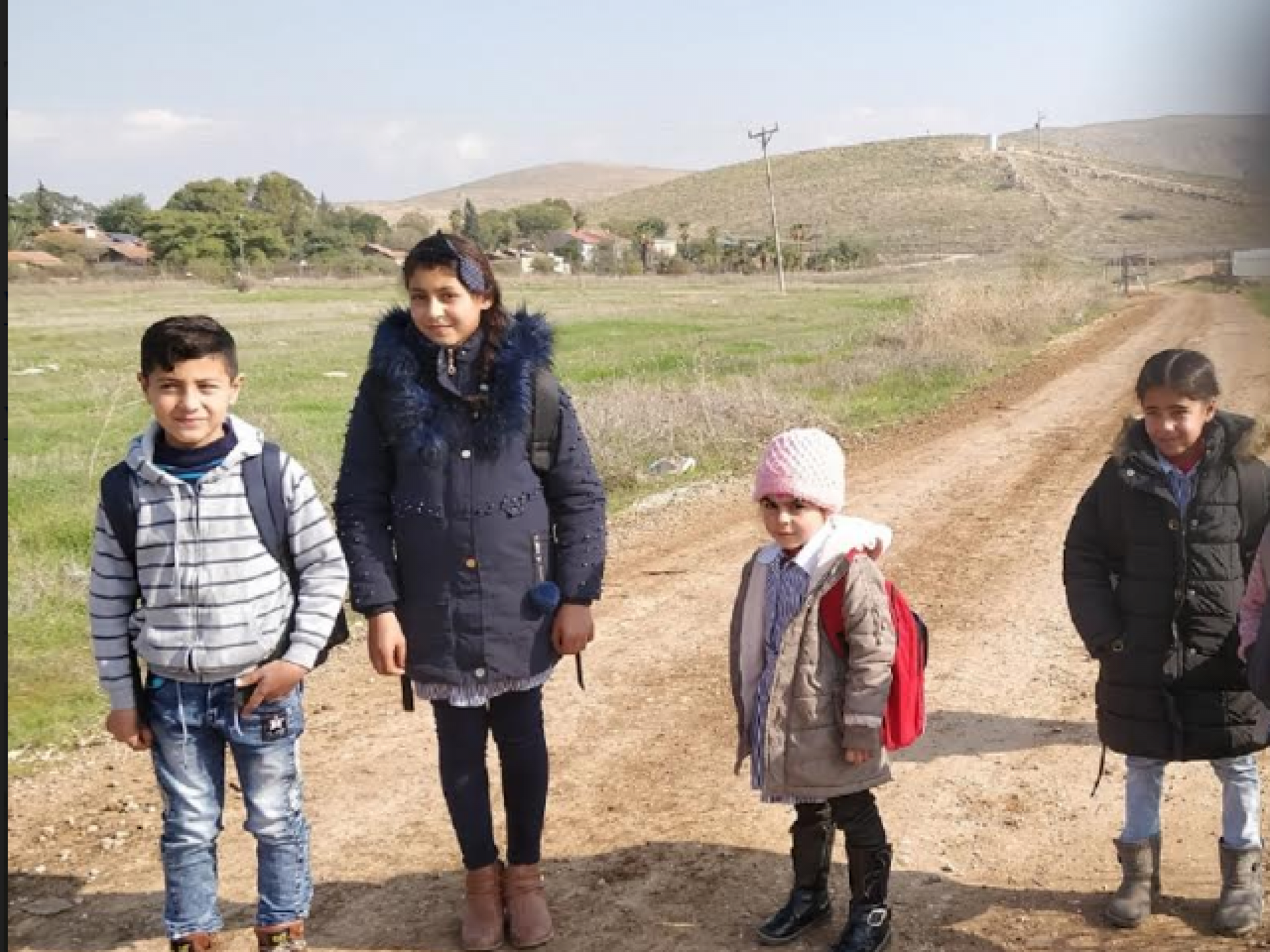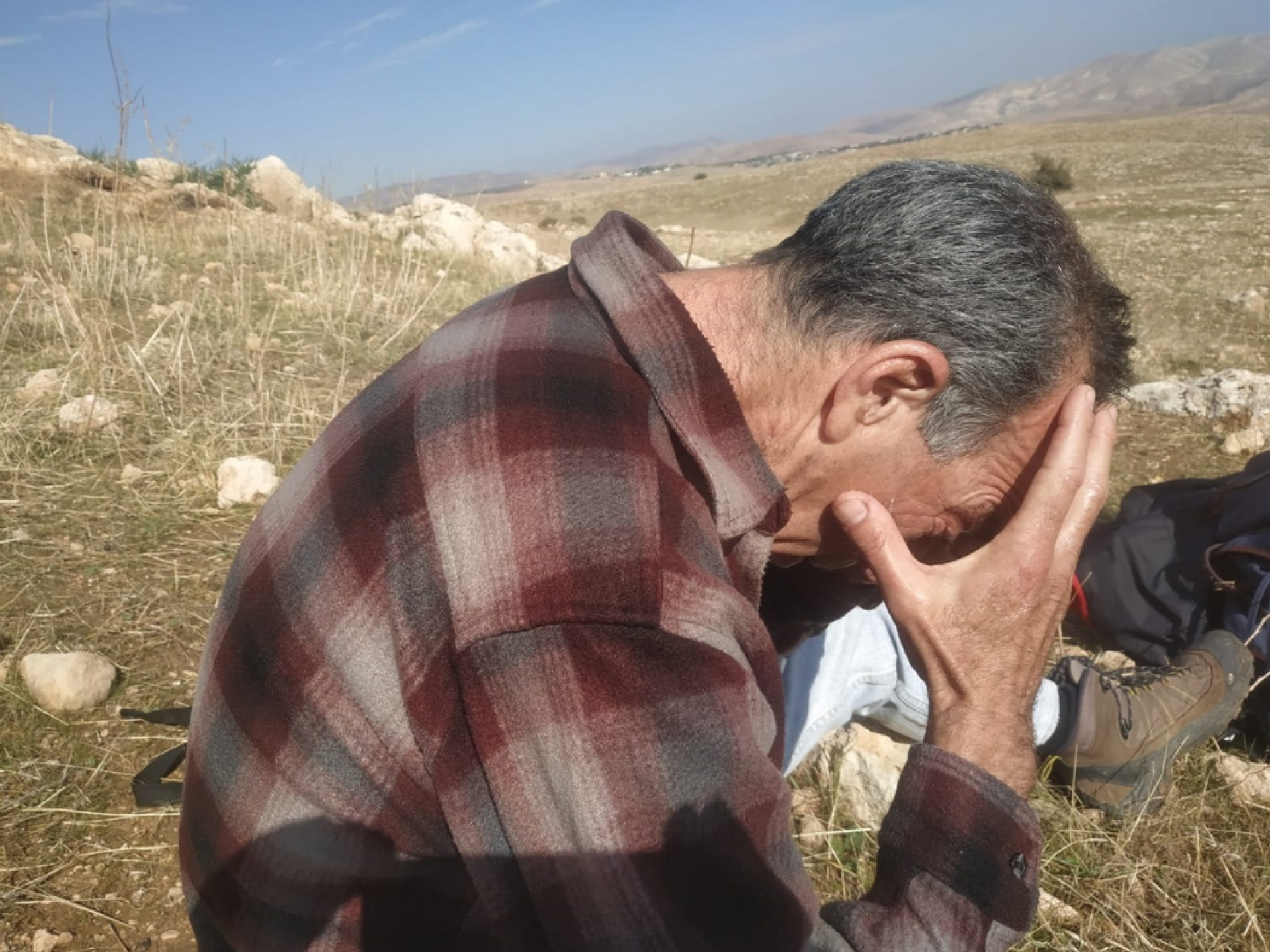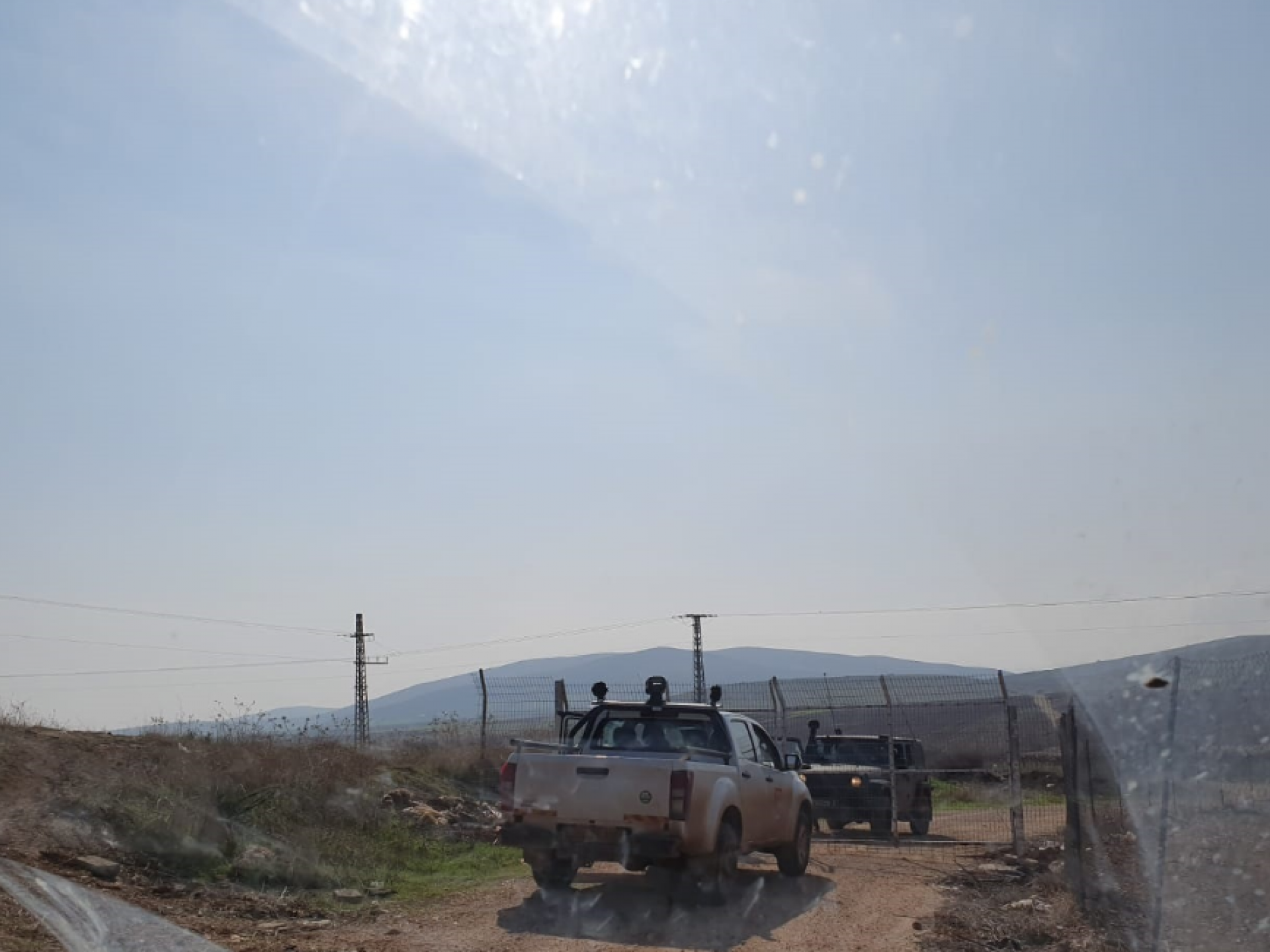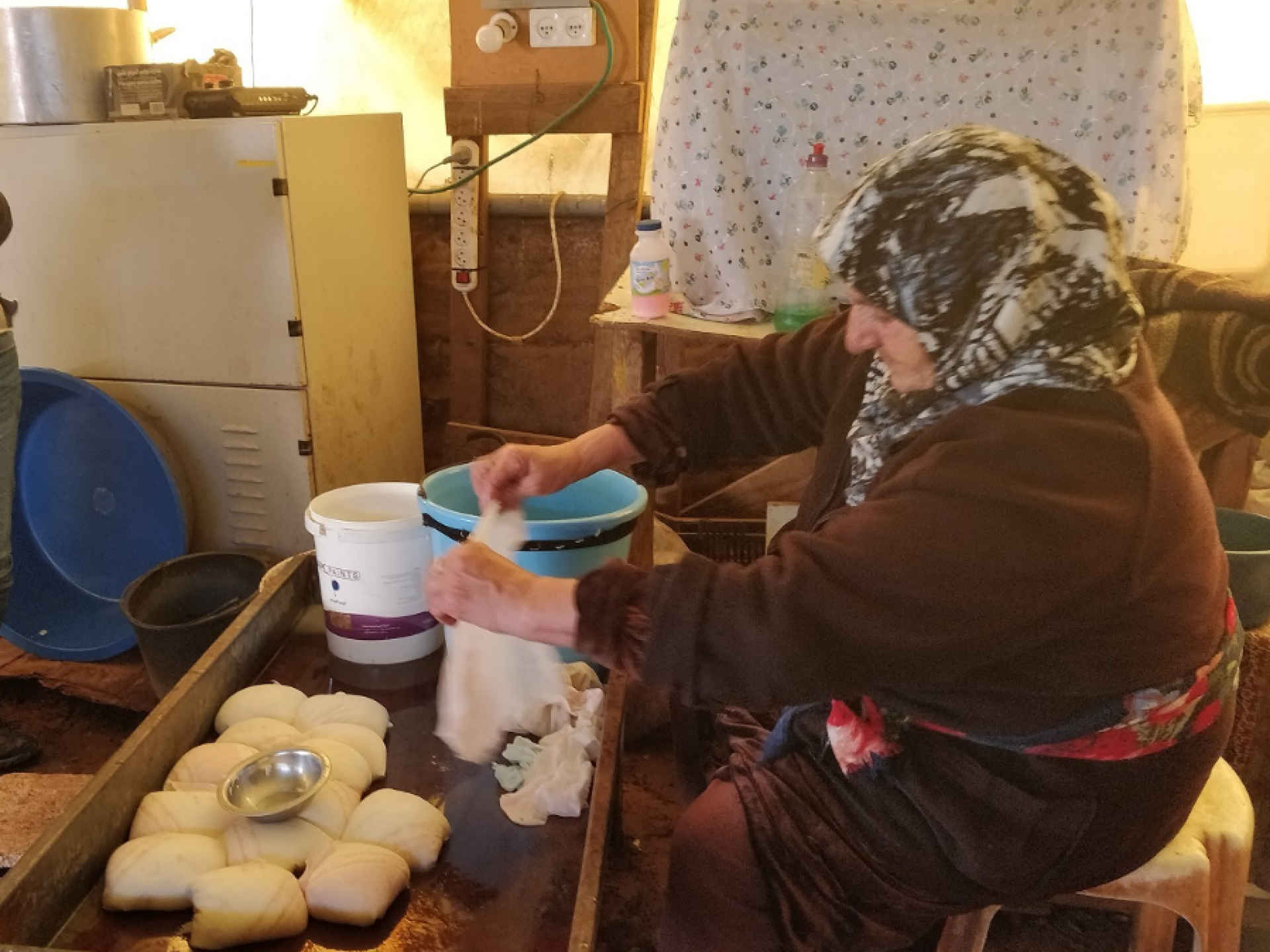Jordan Valley: Terror Celebrates Victory
Ein Rashash
We met Nawal and her daughter Anwar in the tent. The men were grazing their flock outside, near the tents. We were told that because of the “Angels of Peace” Jewish settler-colonists’ harassments and the Israeli army, they no longer dare to go out to pasture unless they are accompanied by Israeli activists. Terrorism rules the day! Now it’s winter, the ground is covered by green growth and grazing close to home is not bad – there’s enough grass. But in 3 months’ time it will be gone. Namely – a death sentence for 6 families numbering about 50 people. This is how the Palestinians are being expelled from the land they have populated for at least 50 years.
We drove the track leading to Al Hadidiya and Homsa – 2 communities numbering over 20 families. A gate has been placed on this track, preventing the Palestinians from accessing their homes or the tents across the road connecting them to the world. The gate was closed, but an army jeep came from the east and summoned the Roi settler-colony’s security official who opened the gate. This man, Yaacov Berman (he says), could not tell us why the track was blocked. He yelled us as soon as he got there and threatened to sue us (“you’ll be paying dearly for this!”) if we photograph.
We told him we were passing to the other side and asked him not to lock the gate so we could get back. He said it’s not up to him but to security official Sagiv. On our way back, about an hour later, the gate was locked and we had to drive very muddy, potholed tracks. Luckily we were on a 4-wheel drive vehicle and after several days without rain.
At 1 p.m. 6 little children disembarked from a minibus near the entrance to the track. The youngest was a 6-year old girl, the oldest about 11. They would walk about 10 minutes to the gate and on the other side someone would come to pick them up. Until the gate was placed there, the brother would pick them up from the road. Now these kids have to walk along in an uninhabited area, all the way to the gate.
We reached the encampment of the Salamin family. It was nearly deserted. We found 3 women there. The entire family, over 20 people originally from the South Hebron Hills but living in this region for the past 30 years, has decided to go back to the South Hebron Hills because of the hardships they have encountered here. Except the 3 women, 2 family members remained, one seriously retarded. They say that on rainy days they cannot come out of the tent at all, and are caged in among the mud furrows behind gates .
.
We tried to reach Homsa as well, to the southeast, but because the track was too muddy, we only made it to the first family on the western side.
We drove to Umm Jamal, at En Al Hilwa. Because of the stream we decided to leave the vehicle by the roadside and a family member drove us to the encampment. In spite of the poverty and the rain that penetrated the tents, the encampment was wondrously clean and the children spick and span. I had a moving meeting with Sara with whom I have had a special bond since she was a 6-year old. I have not seen her for 2-3 years, and this meeting was especially touching. Towards the end of the visit she handed me a gift – a jewel that she holds especially dear, and this brought tears to my eyes.
At Ras Al Ahmar we visited an elderly couple whom I used to know at Makhoul. 4 years ago they left there because the Gokhia gate blocked their way to get to Tamoun, the nearest village, to see a doctor, get any kind of services or see their grandchildren. They moved to the west of the gate. They live there alone, under harsh conditions, with their 40 sheep. The woman suffers from knee problem and must undergo surgery but has not the 2500 shekels needed. She cannot do any farm work, and only sits and makes chees which they sell to a merchant. The husband takes the flock to graze and milks them as well. What a struggle for survival under these harsh Jordan Valley conditions, in humiliating poverty and under an occupation closing in on them from every direction – these 70-year olds!
Hamra Checkpoint at 11:30 and 16:00, and Maale Efrayim Checkpoint at 16:20 were unmanned.
On our way home we got a phone call from Mahmoud who lives above the Hamra checkpoint. He sounded stressed and scared – Civil Administration personnel visited his home today and all the structures there, his home (inhabited by him and his wife and their 3 young daughters), sheep pens, and olive tree grove all were issued demolition orders because they constitute … “destruction of antiquities”. People live on their officially-privately-owned land, and one day the authorities come and tell them that their existence constitutes destruction of antiquities.
The next day, our activists accompanied shepherds at En Rashash: the Jewish settler-colonists galloped wildly into the flock and hurt sheep. One of them also pepper-sprayed our friend Omer’s eyes from about 20 cm.




